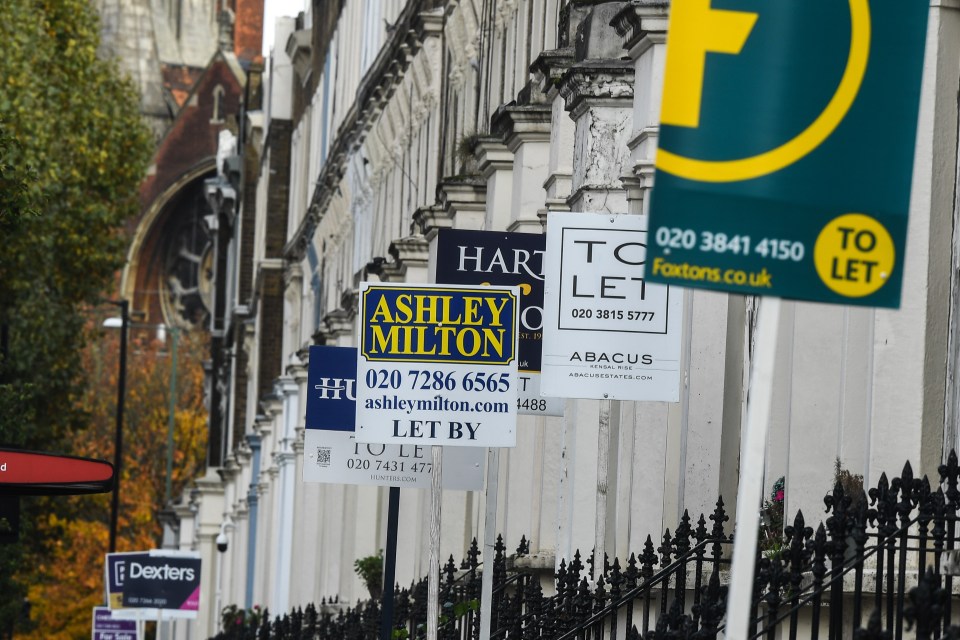Don’t believe the hysteria, landlords will barely pay a penny for rent reforms

The new renters’ rights laws attracted criticism because some argued they would drive landlords out of the market. Yet that is a misguided way of looking at these much-needed laws, writes Elena Siniscalco
Housing is now at the centre of politics in a way that was unthinkable until only a few years ago. Last week, a mammoth piece of legislation on renters’ rights, the Renters’ Reform Bill, was introduced to Parliament. Keir Starmer, meanwhile, was shouting from the rooftops that his party was seriously committed to building new homes, unlike the Tories.
Campaigners used to complain that housing was at the bottom of the list of politicians’ priorities, a policy area much less examined than migration or crime. Now, it could be the defining issue at the next general election.
The new laws on renters’ rights were much delayed – with parts of them announced in the Conservative manifesto four years ago. When they suddenly arrived, they were dropped on Parliament and the public for maximum effect. Yet despite the focus on renters, much of the debate focused on landlords. Many of them predictably came out against them, including Conservative backbenchers who are landlords themselves. Many asked whether these new laws will drive landlords out of the market, worsening the rental crisis.
Truth is, most of what’s contained in the Bill won’t cost landlords a penny. The biggest announcement was the abolition of Section 21 evictions, also called no-fault evictions because they allow the landlord to kick out the tenant without having to establish any fault on their part. At least 7,070 households in London were threatened with homelessness after being served a no-fault eviction between 2019 and 2022. The number skyrockets to more than 50,000 if you look at the whole of England.
Section 21 evictions are a fundamental step forward in renters’ safety. Landlords will have other fairer means of evicting tenants, like Section 8, which involves going to court. To employ Section 8 landlords must have legal reasons, like rent arrears. They also have more powers to kick out “anti-social tenants” with only two weeks’ notice.
The thing that will cost landlords money is the extension of the Decent Home Standard, the minimum health and safety standard for social housing – to the private rented sector.
Is it better to have fewer homes on the market, or to have more, but of very poor quality? It is tempting to choose the latter at a time when the market is oversaturated by demand, especially in London, and where rents are at the highest they’ve been. Last week, the average monthly rent outside London passed £1,000 for the first time.
But it’s short-term thinking. The new rules only provide “a reasonable minimum standard of living which all landlords should be happy to meet”, according to Bartek Staniszewski, housing researcher at Bright Blue. It doesn’t ask landlords to fully refurbish their properties – it just asks them to ensure homes are warm when they need to be, and safe. Poor quality homes are not only bad for the tenants’ health and wellbeing, but are also part of the economic problem we’re suffering with bad insulation and high energy costs. Fixing them is a short-term investment for the tenant, and a long-term investment for the market.
According to Darren Baxter of the Joseph Rowntree Foundation, interest rates will affect landlords much more than the Bill itself. He says interest rates are “shooting through the roof, undermining properties’ profitability”, meaning landlords earn less than they used to. Baxter also claims the “landlords crisis” is not as existential as it’s often portrayed. True, landlords are selling at a faster rate, but “that’s only one side of the supply equation”. The outstanding number of people applying for mortgages has just fallen, but only to the level it was a couple of years ago – and it was rising before then.
The changes in energy efficiency regulations will have a much bigger impact on landlords’ pockets – and that’s probably why the government keeps on delaying them. Improving homes’ energy efficiency will lower tenants’ energy bills, and cut emissions. But research from Mortgage Advice Bureau shows that only 41 per cent of landlords believe new EPC requirements are important for the environment.
These new laws are not perfect. For instance, they place extensive enforcement responsibilities on local councils, whose budgets are already stretched. Yet they’re a much-needed step to protect renters in a market that’s so far been tilted in favour of landlords. They will help restore a balance in the broken relationship between tenants and landlords. And no, they won’t be the driving force behind landlords exiting the market. But they will reach their maximum positive impact only if coupled with real commitments to drive up the supply of homes.